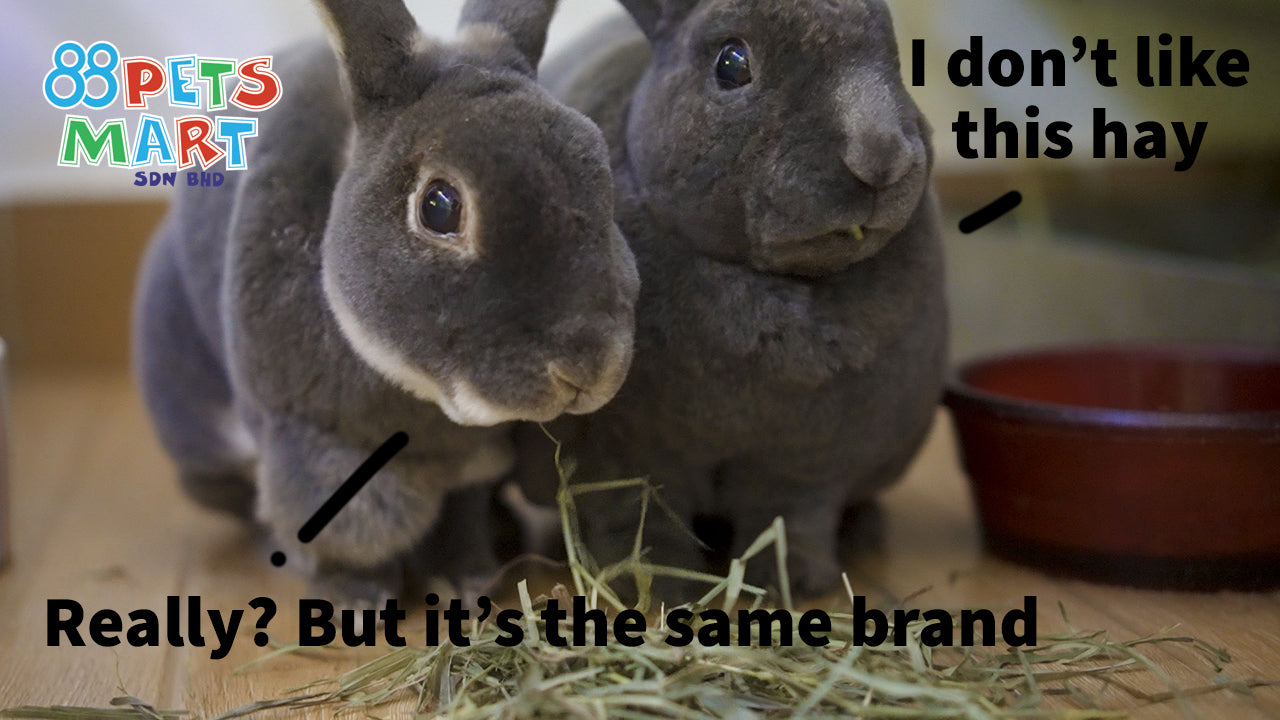
Why doesn't your picky rabbit or grass eating rodent doesn't want to eat your hay?
Video in Cantonese
"My rabbit is so picky. I'm already buying the usual brand that it likes but suddenly it doesn't want to eat it, I don’t understand why!" Has this happened to you and you’ve never found out why? Well today we will explain why this happens.
First, the price of hay varies a lot and there’s a good reason for that. That being said, they are basically the same type of hay, it’s just that they were planted differently. The cheaper ones are being grown and harvested as a food source for horses or cows in mind. These grass feeders are usually not picky and would eat any quality of hay. So the care that’s involved in planting and growing those hay wouldn’t be that thorough. There's no need to maintain the soil’s good quality or use fertiliser.
On the other hand, our picky-eating friends at home that chew up our furniture are not the same as horses and cows. To meet their dietary needs, farmers would need to put more effort into the growing of the crops, thus the cost would also increase.
I'm sure many of you (including ourselves) have realized that buying a good quality brand’s hay doesn’t necessarily guarantee that it would be eaten. For some rabbits, they would be fine with a particular brand of hay for a long time and then suddenly they just wouldn’t eat it anymore. But after some time, they would start munching on it again. So why does this happen?
The answer lies in the changing of the seasons. As the hay are grown in America and experience the 4 seasons, it is unavoidable that seasonal change will affect the quality of the hay.
The most common type of hay that's being sold and well recommended is timothy hay. Although timothy grass can be grown all year long, it doesn't grow well in the drought of summer. This will affect the hay that’s been planted from June to August. So this would in turn affect the hay that’s harvested between and after that period. Depending on the storage of stocks, it might even affect the packs that you’d buy at the end of the year.
What can we do about this? Fortunately, the equally nutritious orchard grass still grows pretty well in the summer, but it doesn’t fair well during the cold winter. Knowing this, we can change our rabbits’ diet to orchard grass towards the end of the year and feed them timothy hay at the first half of the year.
Nutritionally, they are about the same with the major difference being that timothy hay has much coarser leaves. This makes timothy hay more effective in wearing down our rabbits’ ever-growing teeth, so most people would recommend timothy hay over orchard grass hay. However, bear in mind that if the rabbits don’t even eat the timothy hay in the first place, there won’t be much grinding going on anyway. Therefore it’s best to do the switch whenever it’s necessary.

